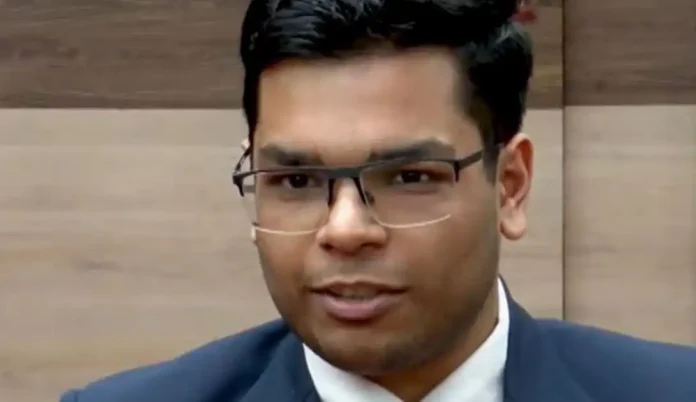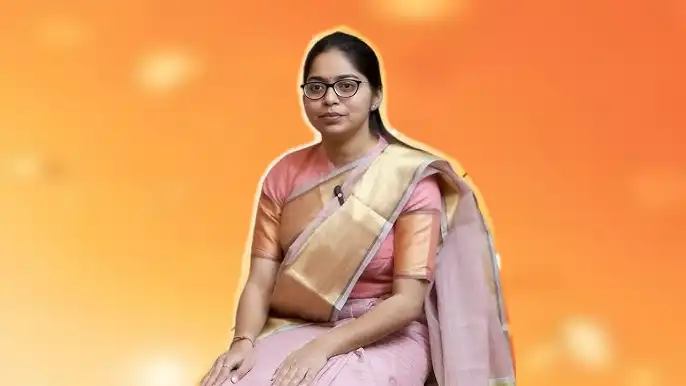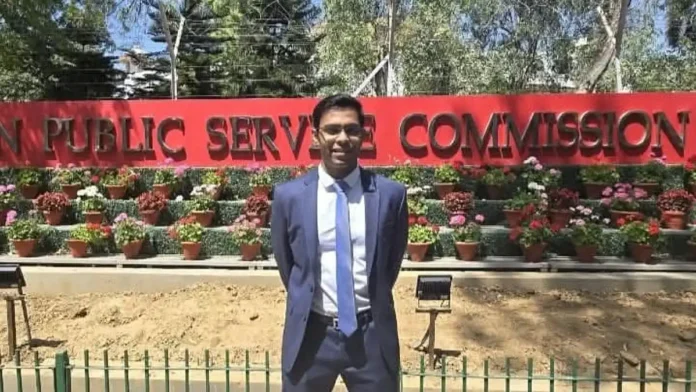A Journey of Grit, Adaptability, and Purpose
The Civil Services Examination conducted by the Union Public Service Commission (UPSC) is a gateway to India’s most prestigious services, including the Indian Administrative Service (IAS), Indian Foreign Service (IFS), and Indian Police Service (IPS). Cracking this exam is considered one of the toughest intellectual pursuits in India, demanding a rare combination of perseverance, discipline, analytical skills, and emotional balance.
Among the top scorers in the UPSC Civil Services Examination 2024, one name that stands out is Aakash Garg, who secured All India Rank 5. His journey is inspiring not just because of the impressive rank but because of how he rose from failure in his first attempt to securing a top spot in his very next one. Aakash’s story is a living testament to the value of self-belief, adaptability, and smart strategy.
Early Life and Educational Background
Aakash Garg was born and raised in North West Delhi. He comes from a middle-class background with strong ethical foundations. His father is a government employee, and his mother is a homemaker. His family provided a stable and encouraging environment where education was given high priority. This environment laid the foundation for his later achievements.
He completed his schooling from CRPF Public School in Delhi in 2018. Right from his school days, Aakash displayed a keen interest in academics, consistently scoring well and demonstrating a logical aptitude. These early indicators of intellectual curiosity eventually guided him toward engineering and later, public service.
After school, Aakash pursued a Bachelor of Technology (B.Tech) in Computer Science from Guru Gobind Singh Indraprastha University. He graduated in 2022 with a solid academic record and a clear vision of contributing to society in a larger way. During his college years, he was not just focused on technical education but also stayed updated with current affairs and national policy, which later proved invaluable for his UPSC preparation.
First Attempt: Lessons from Failure
Aakash’s first attempt at the UPSC CSE in 2023 ended at the preliminary stage. He was unable to qualify for the Mains examination. However, instead of viewing this as a failure, he considered it a critical learning opportunity. He analyzed the gaps in his strategy, preparation depth, and time management. He realized that success in UPSC does not necessarily come from just working hard, but from working smart, consistently, and with the right focus.
This introspection became the turning point in his preparation journey. He overhauled his strategy, refined his schedule, focused more on fundamentals, and created a roadmap that was more tailored to his strengths and weaknesses.
Second Attempt: Cracking UPSC with AIR 5
In 2024, Aakash appeared for the Civil Services Examination once again, this time with a structured and comprehensive preparation strategy. His second attempt proved to be transformational. He cleared all three stages—Prelims, Mains, and the Personality Test—with confidence and secured AIR 5.
He scored a total of 1032 marks, comprising 831 in the written examination (Mains) and 201 in the interview (Personality Test). His sharp rise from a failed Prelims attempt to being among the top five in the country illustrates the power of strategic revision, consistency, and confidence.
Choosing Sociology as Optional Subject
Despite having an engineering background, Aakash chose Sociology as his optional subject. His rationale was clear—Sociology offered a concise, well-structured syllabus that overlapped with the General Studies papers, especially in areas like ethics, governance, and society.
He also found that his interest in understanding social behavior, inequalities, and institutional frameworks aligned well with the subject matter. His analytical skills, honed during his engineering education, allowed him to grasp sociological theories quickly and apply them effectively in Mains answer writing.
His preparation for Sociology involved a blend of standard textbooks, class notes, online resources, and test series. He made a habit of writing answers regularly, analyzing topper copies, and improving on feedback.
Preparation Strategy and Daily Routine
Aakash’s preparation for UPSC was methodical and disciplined. He broke down his journey into three major phases—Prelims preparation, Mains answer writing, and Interview readiness.
Prelims Preparation
- Focus on Basics: Aakash emphasized building strong conceptual foundations. He relied heavily on NCERT books and standard textbooks such as Laxmikanth for Polity, GC Leong for Geography, Ramesh Singh for Economics, and Spectrum for Modern Indian History.
- Mock Tests: He enrolled in multiple Prelims test series and made it a point to simulate real exam conditions. He consistently analyzed his mistakes and tracked improvement over time.
- Current Affairs: Daily newspaper reading, especially from The Hindu and Indian Express, became a regular part of his routine. He made notes and revised them monthly.
Mains Preparation
- Answer Writing Practice: Aakash believed in writing at least one or two answers every day. He practiced structuring answers using the introduction-body-conclusion format and focused on clarity and relevance.
- Essay Writing: He worked on developing a balanced, multidimensional approach in essay writing. He practiced with past year topics and refined his style by reading top scorers’ essays.
- Revision: He revised his notes at least three times before the Mains exam, ensuring retention of key facts, quotes, and examples.
Interview Preparation
- Mock Interviews: Aakash attended mock sessions at Vajiram and Ravi, where he worked on improving his articulation, body language, and clarity of thought.
- Profile-Based Questions: He prepared thoroughly on his graduation subject, current national issues, and personal profile areas such as hobbies and academic background.
- Self-Evaluation: He recorded his own mock interviews to identify behavioral patterns and areas for improvement.
Integrating Technology in Preparation
Being a computer science engineer, Aakash had a natural inclination toward using technology smartly. He used various tools for time management, digital note-making, and even tested structured writing frameworks with the help of AI tools. However, he was cautious about verifying information and did not let technology replace his own understanding and analysis.
He also used productivity tools like digital calendars, timers, and revision trackers to maintain discipline and track goals.
Mental Health, Balance, and Family Support
A key part of Aakash’s journey was his ability to maintain emotional stability. The UPSC journey is long and can often become stressful. Aakash ensured that he did not fall into the trap of burnout by following a balanced schedule.
He made time for recreational activities such as watching movies, engaging in light reading, and spending quality time with his family. His parents played a crucial role in supporting him emotionally, especially during the low points after his first attempt.
He also practiced mindfulness and focused breathing techniques to manage anxiety, especially before critical stages like the Prelims and Personality Test.
Core Strengths and Personality Traits
Several personal traits helped Aakash distinguish himself from other candidates:
- Discipline: His daily study targets and consistent routines demonstrated high levels of self-control.
- Adaptability: He learned from past failures and restructured his preparation effectively.
- Emotional Intelligence: His responses in the interview demonstrated maturity, clarity of thought, and empathy.
- Clarity of Purpose: Even after failing in the first attempt, he never questioned his decision to pursue civil services. His vision kept him anchored.
Advice to Future Aspirants
In multiple interactions after the result, Aakash shared practical advice for UPSC aspirants:
- Accept Failure as Feedback: Learn from your mistakes. Every failure has hidden insights.
- Consistency Over Intensity: Study regularly. Marathons win this race, not sprints.
- Answer Writing is Crucial: Practice daily. Structure and clarity make a significant difference.
- Pick the Right Optional: Choose a subject that complements your GS papers and matches your interest.
- Stay Balanced: Do not ignore mental health. Make time for breaks, hobbies, and relationships.
Conclusion
Aakash Garg’s story is not just about securing a top rank. It is about resilience, introspection, smart strategy, and human balance. From being unable to qualify for Prelims in his first attempt to securing All India Rank 5 in the next, his transformation is a model of what is possible with the right mindset.
His journey serves as an inspiration for countless aspirants who may find themselves discouraged after initial setbacks. It shows that with clarity, consistency, and course correction, the UPSC CSE can be conquered. As Aakash steps into the corridors of governance, his blend of technical acumen, social sensitivity, and human values promises a bright future for Indian public administration.




